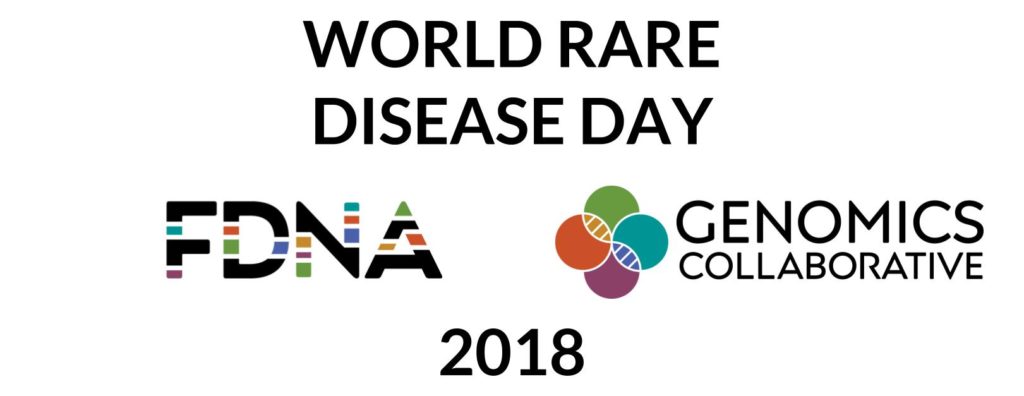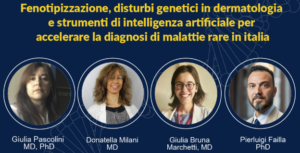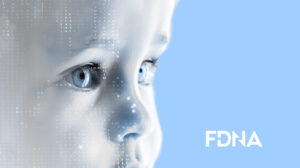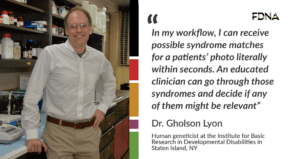Today is World Rare Disease Day 2018.
At FDNA, we recognize that one day is simply not enough time to raise awareness for the plight of rare and undiagnosed patients. Their diseases impact their lives and the lives of their families every day. Their symptoms, their struggles, their fight for more awareness–both socially and in the medical community–and their dedication to research are ongoing.
As long as these patients and their communities continue to face these challenges, we will stand beside them in our efforts to bring the height of technology and the latest in research to the patients who need them most urgently.
With this mission in mind, it seemed only appropriate to choose today to launch the Genomics Collaborative. Together with patients, advocacy organizations, labs, life science companies, doctors, researchers, and public health officials, we will work collaboratively to change the diagnostic odyssey by arming patients and their medical teams with the tools they need to reach a prompt and accurate diagnosis.
In the late 1940’s Dr. Theodore Woodward, a professor at the University of Maryland School of Medicine, instructed his medical interns, “When you hear hoof beats, think of horses, not zebras”.
For the 30 million people in the United States who are currently living with a rare disease, we see your stripes and will continue to dedicate our time and resources to helping others see them too.
Here’s one way we’re partnering with technology to help change lives:
Morgan’s Story: For millions of children around the world, small errors in their DNA deprive them of the freedom to live full, healthy, and happy lives. In most cases, trying to identify and understand these errors is a journey, in fact, it’s an odyssey impacting these children and their families. Sharing data and working together is critical.
Just How Rare are Rare Diseases?
Check out these rare disease statistics from Global Genes.
- There are approximately 7,000 different types of rare diseases and disorders, with more being discovered each day
- 30 million people in the United States are living with rare diseases. This equates to 1 in 10 Americans or 10% of the U.S. population
- Similar to the United States, Europe has approximately 30 million people living with rare diseases. It is estimated that 350 million people worldwide suffer from rare diseases
- If all of the people with rare diseases lived in one country, it would be the world’s 3rd most populous country
- In the United States, a condition is considered “rare” it affects fewer than 200,000 persons combined in a particular rare disease group. International definitions on rare diseases vary. For example in the UK, a disease is considered rare if it affects fewer than 50,000 citizens per disease
- 80% of rare diseases are genetic in origin, and thus are present throughout a person’s life, even if symptoms do not immediately appear
- Approximately 50% of the people affected by rare diseases are children
- 30% of children with rare diseases will not live to see their 5th birthday
- Rare diseases are responsible for 35% of deaths in the first year of life
- The prevalence distribution of rare diseases is skewed – 80% of all rare disease patients are affected by approximately 350 rare diseases
- According to the Kakkis EveryLife Foundation, 95% of rare diseases have not one single FDA-approved drug treatment
- During the first 25 years of the Orphan Drug Act(passed in 1983), only 326 new drugs were approved by the FDA and brought to market for all rare disease patients combined
- According to the National Institutes of Health Office of Rare Disease Research, approximately 6% of the inquiries made to the Genetic and Rare Disease Information Center(GARD) are in reference to an undiagnosed disease
- Approximately 50% of rare diseases do not have a disease-specific foundation supporting or researching their rare disease
Looking to Support a Rare Organization?
Yellow Brick Road Project
The Yellow Brick Road Project is a quest to cure HNRNPH2 mutations.
All Things Kabuki
All Things Kabuki Inc. is an organization that serves the Kabuki patient community and their families.
Pitt Hopkins Research Foundation
The Pitt Hopkins Research Foundation (PHRF) seeks to support research dedicated to finding a treatment, and an eventual cure of Pitt Hopkins syndrome and other similar disorders.
NGLY1 Foundation
NGLY1.org eliminates the challenges of N-glycanase deficiency through research, awareness, and support.
The Focus Foundation
The Focus Foundation is dedicated to helping children and families affected by X & Y Variations, Dyslexia, and/or Developmental Dyspraxia.
KBG Foundation
The KBG Foundation is dedicated to providing support, assisting in research programs, and advocating to raise awareness about the syndrome.
The Jansen’s Foundation
The mission of the Jansen’s Foundation is to bring awareness and support research in hopes of bringing about a cure to this debilitating skeletal condition.
Cure Sanfilippo Foundation
This foundation exists to advocate for and fund research directed toward a cure and treatment options for patients with Sanfilippo Syndrome.
Bridge the Gap: Syngap
Bridge the Gap seeks to serve, educate, and fund research for families coping with the effects of SYNGAP mutations.
You can find more organizations to donate to and continue learning more about rare diseases by visiting the following sites:













